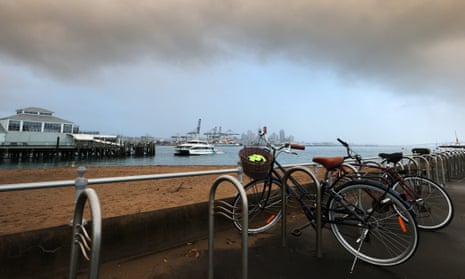Homeowners in New Zealand’s largest city will have to chip in around a dollar a week to plant urban forests, pave cycle lanes and reduce Auckland’s emissions, under the city’s proposal for one of the world’s first climate-targeted rates.
Auckland’s mayor, Phil Goff, announced plans on Wednesday for a billion-dollar climate package to reshape the city’s infrastructure and reduce its carbon emissions, investing in electric ferries, cycling and walkways, and urban forests.
“Auckland’s emissions are not remotely tracking in line with our target to reduce emissions by 50% by 2030,” Goff said.
“Long after Covid-19 ceases to be a major threat to us, there will be the ongoing crisis caused by climate change. We can’t afford to put off any longer the action needed to avoid a climate disaster.”
Goff said the proposed fund would plant 15,000 mature native trees in urban areas, 4,000 trees and plants for new forests; accelerate decarbonisation of the ferry fleet; and add new cycling and walking pathways – with a focus on boosting tree coverage, public transport and bike lanes for lower-income areas.
The proposed rate, which equates to $NZ1.10 (57p) a week for owners of a median-value home, will raise an estimated $NZ574m over 10 years ($391m), with another $471m secured through central government co-funding and other sources, the council has said. All of the money raised will and used to fund climate action. The rate is the central feature of a “mayoral proposal” that lays out plans for the city’s budget, which will be voted on next year.
A spokesperson for that mayor’s office said while other countries had developed a variety of climate-focused taxes, they believed the design of the targeted rate was a world first – and certainly a first for the country.
